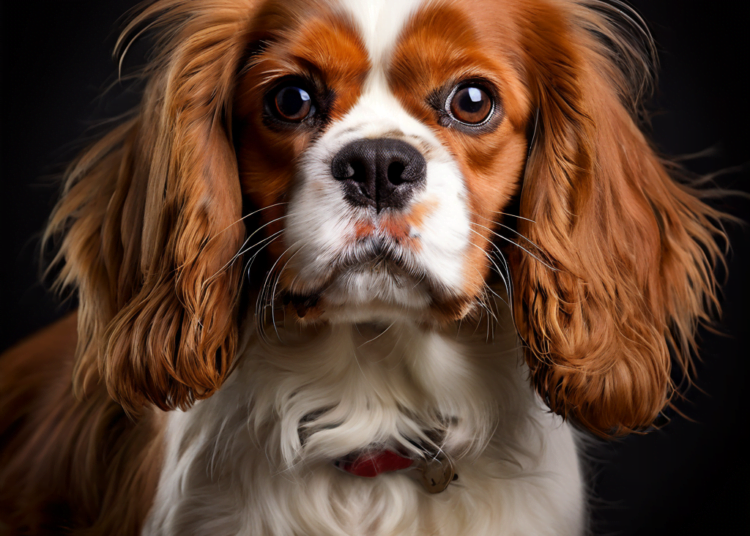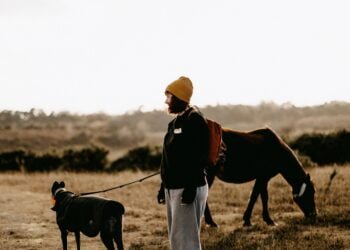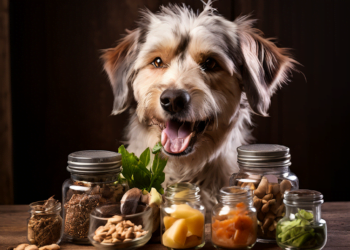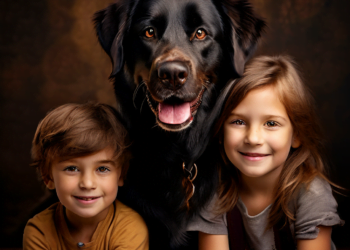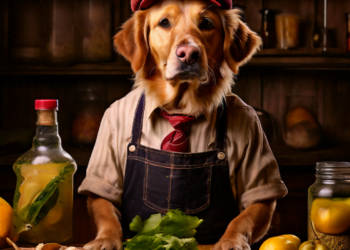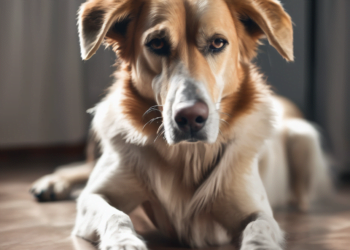Welcome to our article on the Cavalier King Charles Spaniel, a breed renowned for its loyalty and companionship. If you’re looking for a devoted and affectionate four-legged friend, the Cavalier King Charles Spaniel could be the perfect addition to your family. In this article, we will explore this beloved breed’s charm, history, characteristics, and care. Whether you’re a potential owner or simply curious about these wonderful dogs, read on to discover why the Cavalier King Charles Spaniel is highly regarded as a loyal companion.
Key Takeaways:
- The Cavalier King Charles Spaniel is known for its loyalty and devotion to its owners.
- This breed has a rich history, originally serving as lapdogs for royalty.
- Characteristic traits of the Cavalier King Charles Spaniel include a friendly nature and an affectionate temperament.
- Understanding the breed standard can help recognize a purebred Cavalier, King Charles Spaniel.
- Proper care and attention, including grooming, exercise, and healthcare, are crucial for a happy and healthy Cavalier King Charles Spaniel.
The History of the Cavalier King Charles Spaniel
Explore the fascinating history of the Cavalier King Charles Spaniel, a breed with deep roots dating back centuries. Originally known as the King Charles Spaniel, these charming dogs have a captivating story.
The King Charles Spaniel originated in Europe, particularly in England, where it was adored by aristocracy and royalty. It was often seen accompanying members of the royal court, including King Charles II, who was known for his fondness for these small and elegant companions.
During the 17th and 18th centuries, the King Charles Spaniel underwent significant shifts in appearance and popularity. Spaniels with flat faces and protruding eyes, known as “Smooshy-Faced” or “Short-Faced” varieties, were especially favored by King Charles II, and their distinct features resulted from selective breeding during that time.
However, as the years went by, the breed’s appearance changed, and the muzzle of the King Charles Spaniel became slightly longer and more snout-like. This transition led to a divide within the breed, with some enthusiasts preferring the original “Short-Faced” variety, while others favored the newer “Long-Faced” variety. This distinction eventually created two distinct breeds – the Cavalier King Charles Spaniel and the King Charles Spaniel.
In the early 20th century, a group of dedicated breeders made it their mission to restore the original appearance and characteristics of the King Charles Spaniel. These breeders aimed to recreate the dogs depicted in paintings from the 17th century, emphasizing their small size, well-proportioned bodies, and expressive eyes.
This revival led to the establishment of the Cavalier King Charles Spaniel as a separate breed in the 1920s. The breed gained recognition and popularity worldwide, attracting a devoted following of enthusiasts who admired their beauty, gentle nature, and captivating history.
“The Cavalier King Charles Spaniel embodies the elegance and charm of a bygone era, and their history is deeply intertwined with the royal courts of Europe.” – Emily Thompson, Canine Historian
Today, the Cavalier King Charles Spaniel holds a special place in the hearts and homes of many families. Their rich history, combined with their endearing qualities, continues to make them beloved pets and companions worldwide.
For a more comprehensive understanding of the Cavalier King Charles Spaniel’s history, refer to the table below:
| Period | Key Events |
|---|---|
| 17th Century | King Charles II’s fondness for the breed elevates its popularity. |
| 18th Century | Appearance and preferences for “Smooshy-Faced” and “Long-Faced” varieties divide the breed. |
| 20th Century | Dedicated breeders aim to restore the breed’s original appearance, leading to the establishment of the Cavalier King Charles Spaniel. |
Characteristics of the Cavalier King Charles Spaniel
Regarding unique and endearing characteristics, the Cavalier King Charles Spaniel stands out from the crowd. This delightful breed possesses a range of traits that make them truly special and beloved by dog enthusiasts worldwide. Let’s delve into what sets the Cavalier King Charles Spaniel apart:
1. Friendly Nature
The Cavalier King Charles Spaniel is known for its friendly and pleasant nature. They have an innate ability to get along well with other dogs, cats, and even strangers. This amiable characteristic makes them a wonderful choice for families and individuals seeking a companion that can easily adapt to different social environments.
2. Affectionate Temperament
One of the most cherished attributes of the Cavalier King Charles Spaniel is its affectionate temperament. These dogs thrive on love and attention, readily showering their human companions affection and loyalty. Whether cuddling on the couch, snuggling in bed, or simply following you, their devotion knows no bounds.
3. Adaptability
The adaptability of the Cavalier King Charles Spaniel is remarkable. Whether they’re living in a bustling city apartment or a spacious countryside home, these dogs can easily adjust to their surroundings. Their adaptable nature allows them to thrive in various lifestyles, making them popular for families, singles, and seniors.
“The Cavalier King Charles Spaniel’s friendly nature, affectionate temperament, and adaptability make them a perfect choice for individuals and families seeking a loyal and loving companion.” – [Author Name]
4. Intelligence & Trainability
Cavalier King Charles Spaniels are highly intelligent dogs who possess great trainability. They are quick learners and respond well to positive reinforcement training methods. Whether basic obedience commands or advanced tricks, this breed excels in learning new skills and eagerly engages in stimulating mental activities.
5. Gentle and Patient
The gentle and patient nature of the Cavalier King Charles Spaniel makes them excellent companions for households with children or other pets. They are known for their tolerance and ability to interact gently, ensuring harmonious relationships within the family. Their calm demeanor and patience make them ideal for families with young children.
If you are looking for a friendly, affectionate, adaptable, and intelligent companion, the Cavalier King Charles Spaniel may be the perfect breed for you. With their natural charm and delightful personality, they bring joy and love into the lives of their owners.
| Characteristics | Description |
|---|---|
| Friendly Nature | Get along well with other dogs, cats, and strangers |
| Affectionate Temperament | Thrives on love and attention, devoted and loyal |
| Adaptability | Can thrive in various lifestyles and living environments |
| Intelligence & Trainability | Highly intelligent and responds well to training |
| Gentle and Patient | Tolerant and interacts gently, great for households with children and other pets |
The Cavalier King Charles Spaniel Breed Standard
Certain characteristics define the Cavalier King Charles Spaniel breed, which is beloved and charming. Understanding the breed standard is essential for breeders, owners, and enthusiasts who want to appreciate this breed’s unique qualities. Let’s look closer at the size, appearance, and preferred characteristics that make the Cavalier King Charles Spaniel stand out.
Size
The Cavalier King Charles Spaniel is a small to medium-sized dog. According to the breed standard, adult Cavaliers should ideally weigh between 13 and 18 pounds (5.9 to 8.2 kilograms) and stand between 12 and 13 inches (30.5 to 33 centimeters) tall at the shoulder. While variations in size can occur, adhering to these general guidelines helps maintain the breed’s physical traits and overall structure.
Appearance
The Cavalier King Charles Spaniel boasts an elegant and distinctive appearance. Their silky coat, which comes in various colors including Blenheim, Tricolor, Black and Tan, and Ruby, is one of their most defining features. Their expressive large eyes and well-proportioned head give them an endearing and gentle expression. With a moderately long and well-feathered tail that is often held high, Cavaliers exude grace and elegance.
Preferred Characteristics
Beyond their size and appearance, the Cavalier King Charles Spaniel possesses a range of desirable qualities that make them sought-after companions. As outlined in the breed standard, Cavaliers are known for their friendly nature, affectionate temperament, adaptability, and love for human companionship. Whether as a family pet or a therapy dog, their gentle and outgoing personality makes them beloved household members.
“The Cavalier King Charles Spaniel exemplifies the breed standard with its size, appearance, and preferred characteristics. Their charm and devotion have endeared them to countless families, making them a popular choice for those seeking a loving and loyal companion.” – [Name of an expert]
Now that we’ve explored the Cavalier King Charles Spaniel breed standard, let’s move on to the next section to learn about caring for these delightful dogs.
Caring for Your Cavalier King Charles Spaniel
Proper care and attention are essential to ensure the well-being of your beloved Cavalier King Charles Spaniel. By following these CKCS information and CKCS health tips, you can keep your furry friend happy and healthy for years to come.
Grooming
Regular grooming sessions are necessary to maintain your Cavalier King Charles Spaniel’s beautiful coat and overall hygiene. Brush their silky fur a few times weekly to prevent matting and remove loose hairs. Don’t forget to check their ears regularly for signs of infection and trim their nails to avoid discomfort.
Exercise
While Cavalier King Charles Spaniels are small, they have moderate exercise needs. Aim for daily walks or play sessions to keep them active and mentally stimulated. This helps them maintain a healthy weight and strengthens your bond with your furry companion.
Nutrition
A well-balanced diet is crucial for the optimal health of your Cavalier King Charles Spaniel. Choose high-quality dog food that meets their nutritional requirements, and avoid overfeeding to prevent obesity. Consult with a veterinarian to determine the appropriate portion sizes and dietary restrictions based on your CKCS’s age, size, and activity level.
Healthcare
Regular veterinary check-ups are essential to monitor your Cavalier King Charles Spaniel’s health and detect potential issues early on. Vaccinations, flea and tick prevention, heartworm prevention, and dental care are all crucial aspects of your CKCS healthcare routine. Stay up to date with vaccinations and schedule routine dental cleanings to ensure their oral health.
| CKCS Healthcare Tips | Description |
|---|---|
| 1. Regular Veterinary Check-ups | Ensure your CKCS receives routine examinations, vaccinations, and necessary preventive treatments. |
| 2. Dental Care | Protect your CKCS from fleas, ticks, and heartworms by using appropriate preventive treatments. |
| 3. Parasite Prevention | Feed your CKCS a balanced diet formulated for their nutritional needs and avoid overfeeding. |
| 4. Healthy Diet | Feed your CKCS a balanced diet formulated for their nutritional needs, and avoid overfeeding. |
| 5. Regular Exercise | Engage your CKCS in daily exercise to keep them physically fit and mentally stimulated. |
By following these CKCS information and CKCS health tips, you can provide the best care for your Cavalier King Charles Spaniel, ensuring a happy and thriving furry companion.
Finding a Cavalier King Charles Spaniel Breeder
If you’re looking to add a Cavalier King Charles Spaniel (CKCS) to your family, it’s important to find a reputable breeder who prioritizes the health and welfare of their dogs. CKCS breeders are dedicated to preserving the breed’s integrity and producing puppies that adhere to the breed standard.
When searching for CKCS breeders, there are a few key factors to consider:
- Health Testing: Reputable breeders prioritize the health of their dogs and conduct thorough health testing on their breeding stock. They screen for potential genetic health issues such as heart conditions, eye problems, and neurological disorders.
- Breeding Practices: Choosing a breeder who follows responsible breeding practices is important. This includes appropriately spacing out breedings and not overbreeding their dogs.
- Socialization: A good breeder will ensure that their puppies are well-socialized and exposed to various environments, sounds, and people from an early age. This helps puppies develop into confident and well-adjusted adults.
- References and Recommendations: Ask the breeder for references from previous puppy buyers or recommendations from trusted sources such as local breed clubs or veterinarians. Happy and satisfied puppy owners can provide valuable insights into their experiences with the breeder.
Visiting the breeder’s facility and meeting the dogs in person is also recommended. This will allow you to assess the living conditions and temperament of the dogs and ask any questions you may have.
Choosing the right breeder is crucial when adding a CKCS to your family. It ensures that you are getting a healthy, well-socialized puppy who will grow up to be a loving and loyal companion.
Bringing Home a Cavalier King Charles Spaniel Puppy
Bringing a Cavalier King Charles Spaniel puppy into your home is an exciting and joyful experience. Ensuring a smooth transition for your new furry friend requires careful planning and preparation. Here are the essential steps and preparations you need to take to welcome your Cavalier King Charles Spaniel puppy with love and care.
Socialization
One of the crucial aspects of raising a well-rounded and confident Cavalier King Charles Spaniel puppy is socialization. Introduce your puppy to various people, animals, and environments safely and positively. This will help them develop into friendly, sociable adults.
Training
Early training is essential for a Cavalier King Charles Spaniel puppy’s development. Start with basic commands such as sit, stay, and come. Positive reinforcement techniques, such as rewards and praise, work well with this intelligent and eager-to-please breed.
Establishing Routines
Cavalier King Charles Spaniels thrive in a structured environment. Establish consistent routines for feeding, potty breaks, exercise, and daily activities. This will help your puppy feel secure and adapt quickly to their new home.
Creating a Safe Environment
Ensure your home is safe and secure for your Cavalier King Charles Spaniel puppy. Remove hazardous items, secure loose wires, and properly fence your yard. Provide them with a comfortable bed, chew toys, and a designated space to retreat and feel safe.
Nutrition and Veterinary Care
Feed your Cavalier King Charles Spaniel puppy a balanced and nutritious diet recommended by your veterinarian to support its growth and overall health. Schedule regular veterinary check-ups, vaccinations, and preventative treatments to ensure its happiness and health.
Remember, bringing a Cavalier King Charles Spaniel puppy into your home requires time, patience, and dedication. The love and companionship they provide make it all worthwhile.
| Essential Steps for Bringing Home a Cavalier King Charles Spaniel Puppy |
|---|
| 1. Socialization |
| 2. Training |
| 3. Establishing Routines |
| 4. Creating a Safe Environment |
| 5. Nutrition and Veterinary Care |
Common Health Issues in Cavalier King Charles Spaniels
Cavalier King Charles Spaniels are generally healthy dogs, but like any breed, they are prone to certain health issues. Owners need to be aware of these potential concerns and take preventive measures to ensure their pet’s well-being. Here are some of the most common health issues in Cavalier King Charles Spaniels:
1. Heart Conditions:
Cavaliers are susceptible to heart diseases, particularly mitral valve disease, where the valve controlling blood flow between the heart’s chambers becomes faulty. Regular veterinary check-ups, heart-healthy diets, and appropriate exercise can help manage this condition.
2. Eye Problems:
Cataracts, retinal dysplasia, and progressive retinal atrophy are some eye conditions that Cavaliers may develop. These can lead to vision loss and require early detection and timely treatment to preserve eye health.
3. Neurological Disorders:
Syringomyelia, a condition characterized by fluid-filled cavities in the spinal cord, is commonly seen in Cavaliers. It can cause pain, weakness, and coordination difficulties. It is crucial to work closely with a veterinarian to manage symptoms and provide pain relief.
While these are the most prevalent health issues, Cavaliers may also be prone to other conditions such as hip dysplasia, patellar luxation, and allergies. Regular veterinary care, a balanced diet, exercise, and proper grooming can help minimize the risk of these health problems.
“Being aware of the potential health issues and taking proactive measures can help Cavaliers live long, healthy lives as cherished family members.”
Early detection plays a vital role in managing and treating these health concerns. Therefore, regular check-ups, vaccinations, and screenings are crucial for detecting any potential problems at an early stage.
If you notice any signs of discomfort, such as difficulty breathing, excessive scratching, or changes in behavior, it is essential to consult a veterinarian promptly.
Preventive measures to promote CKCS health:
- Regular veterinary check-ups and vaccinations
- Heart-healthy diet and appropriate exercise
- Eye examinations and early treatment
- Monitor for any signs of neurological issues
- Grooming and hygiene practices
Understanding the common health issues in Cavalier King Charles Spaniels and implementing preventive measures can help ensure a long and happy life for your beloved companion.
Conclusion
The Cavalier King Charles Spaniel is a remarkable breed, known for its unwavering loyalty and companionship. Throughout this article, we explored the charm and qualities that make these dogs special.
From their fascinating history as lapdogs for royalty to their friendly nature and adaptability, Cavalier King Charles Spaniels has captured the hearts of countless dog lovers worldwide. Their affectionate temperament and ability to form deep bonds with their owners make them the perfect pet for those seeking love and companionship.
As you consider adding a Cavalier King Charles Spaniel to your family, it’s crucial to consider their care. From grooming and exercise to nutrition and healthcare, providing them with the proper care and attention will ensure their well-being.
Whether you’re looking for a loyal companion or a wonderful family pet, the Cavalier King Charles Spaniel is a breed that will bring joy and love into your life. Their unique qualities and unwavering devotion make them a treasured member of any family.
FAQ
What makes the Cavalier King Charles Spaniel a loyal companion?
Cavalier King Charles Spaniels are known for their affectionate and loyal nature. They form strong bonds with their owners and thrive on being part of a loving family.
How can I learn about the history of the Cavalier King Charles Spaniel?
You can learn about the fascinating history of the Cavalier King Charles Spaniel by exploring their origins as lapdogs for British royalty. Their lineage can be traced back to the time of King Charles II.
What are some key characteristics of the Cavalier King Charles Spaniel?
The Cavalier King Charles Spaniel is known for being friendly, gentle, and adaptable. They have a loving temperament and get along well with children and other pets, making them an ideal family companion.
What are the breed standards for the Cavalier King Charles Spaniel?
The breed standards for the Cavalier King Charles Spaniel outline their size, appearance, and preferred characteristics. They are a small to medium-sized breed with distinctive floppy ears and a silky coat in various colors.
How can I take care of my Cavalier King Charles Spaniel?
Taking care of a Cavalier King Charles Spaniel involves regular grooming, daily exercise, a balanced diet, and routine healthcare visits. It’s essential to provide them with love, attention, and mental stimulation.
How can I find a reputable Cavalier King Charles Spaniel breeder?
When searching for a breeder, it is crucial to do thorough research, ask for recommendations, and visit the breeder’s facility to ensure the puppies are raised in a healthy and loving environment.
What should I consider when bringing home a Cavalier King Charles Spaniel puppy?
Bringing home a Cavalier King Charles Spaniel puppy requires preparations such as puppy-proofing your home, crate training, socialization, and establishing routines for feeding, exercise, and training.
What are some common health issues in Cavalier King Charles Spaniels?
Cavalier King Charles Spaniels are prone to certain health issues such as heart conditions, eye problems, and neurological disorders. Regular vet check-ups, proper nutrition, and exercise can help minimize the risks.


